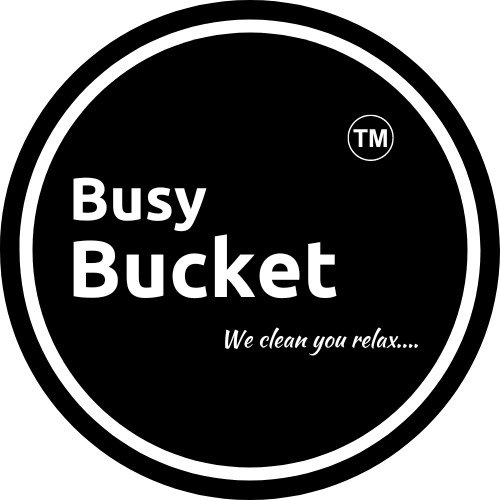A clean kitchen is essential for maintaining hygiene and ensuring a healthy cooking environment. While store-bought cleaning products are effective, they often contain harsh chemicals. You can achieve a sparkling clean kitchen with Home Remedies for Kitchen Cleaning that are natural, safe, and effective. From vinegar and baking soda for grease to lemon and salt for cutting boards, these homemade solutions for kitchen cleaning tackle grime without harsh chemicals. Removing odours, disinfecting surfaces, or scrubbing away tough stains, these remedies work wonders. Check out the blog to find the best DIY kitchen cleaning hacks that will keep your space fresh and germ-free.
Steps to to Make Home Remedies for Kitchen Cleanings:
Cleaning your kitchen naturally is simple and effective. Use home remedies for kitchen cleaning like vinegar for grease, baking soda for scrubbing, and lemon for freshness. These homemade solutions for kitchen cleaning ensure a sparkling, chemical-free space effortlessly.
Vinegar and Baking Soda for Greasy Surfaces
Grease buildup is common in kitchens, particularly around stovetops, countertops, and cabinets. Cooking oils, butter, and splattered food particles create stubborn grease stains that are difficult to remove with just soap and water. Using a combination of vinegar and baking soda provides a powerful, natural solution to break down these greasy residues without damaging surfaces.
How to Use Vinegar and Baking Soda for Kitchen Cleaning?
- Mix equal parts of white vinegar and water in a spray bottle.
- Spray the greasy area thoroughly and let it sit for 5-10 minutes to loosen up the grease.
- Sprinkle a generous amount of baking soda over the area.
- Use a sponge or scrubbing brush to scrub away the grease.
- Wipe the surface clean with a damp cloth.
Why It Works:
- Vinegar is acidic, which helps break down grease and dissolve stubborn grime.
- Baking soda is mildly abrasive, making it ideal for scrubbing tough stains without scratching surfaces.
- This combination is chemical-free and safe for food preparation areas.
Lemon and Salt for Cutting Boards
Cutting boards, especially wooden ones, can trap bacteria, food stains, and lingering odours. Regular cleaning is necessary to ensure safe food preparation. Instead of using chemical cleaners, a natural combination of lemon and salt effectively disinfects and refreshes your cutting boards.
How to Use Lemon and Salt for Cutting Boards?
- Sprinkle a generous amount of coarse salt over the cutting board.
- Cut a lemon in half and use it as a scrubber, rubbing it over the surface in circular motions.
- Allow the mixture to sit for about 5 minutes.
- Rinse the cutting board with warm water and let it air dry.
Why It Works:
- Lemon has antibacterial properties that help kill germs. Its natural acidity also acts as a mild bleaching agent to remove stains.
- Salt acts as a gentle abrasive to scrub away food residues and lift dirt from the board’s surface.
- This method is safe and effective for both wooden and plastic cutting boards.
Baking Soda for Cleaning the Sink
The kitchen sink is one of the most frequently used areas in the kitchen, making it prone to bacteria buildup, soap scum, and food stains. Baking soda is an excellent natural cleaner that eliminates stains, removes odours, and leaves the sink looking fresh.
How to Use Baking Soda for Cleaning the Sink
- Sprinkle a generous amount of baking soda all over the sink, covering stained and grimy areas.
- Use a damp sponge or an old toothbrush to scrub the entire sink, focusing on stubborn spots.
- Rinse thoroughly with warm water.
- For added shine and disinfection, wipe the sink with a cloth soaked in vinegar.
Why It Works:
- Baking soda neutralizes odours and gently scrubs away dirt and stains.
- Vinegar disinfects the sink and helps remove any lingering residues.
- This method keeps your sink smelling fresh and looking spotless without the use of harsh chemicals.
Coffee Grounds for Odor Removal
Kitchen odours can linger in trash bins, refrigerators, and garbage disposals. Instead of using artificial air fresheners, coffee grounds work as a natural deodorizer by absorbing and neutralizing bad smells.
How to Use Coffee Grounds for Odor Removal?
- Take dry, used coffee grounds and place them in a small bowl.
- Set the bowl inside your refrigerator, near the trash can, or in any area with persistent odours.
- Replace the coffee grounds every few days for continuous freshness.
Why It Works:
- Coffee grounds are rich in nitrogen, which helps neutralize foul smells.
They absorb moisture and trap odour particles naturally. - This method is eco-friendly since it repurposes used coffee grounds instead of discarding them.
White Vinegar for Microwave Cleaning
Microwave interiors accumulate dried food splatters, grease, and odours. Cleaning them regularly with vinegar makes the process effortless while keeping the appliance fresh and sanitary.
How to Use White Vinegar for Microwave Cleaning
- Fill a microwave-safe bowl with equal parts white vinegar and water.
- Place the bowl inside the microwave and heat it on high for 3-5 minutes.
- Let the bowl sit inside for a couple of minutes to allow the steam to loosen dried food particles.
- Wipe the interior with a clean cloth or sponge to remove grime easily.
Why It Works:
- The steam softens hardened food residue, making it easy to wipe off.
- Vinegar cuts through grease and neutralizes lingering odours.
- This method eliminates the need for scrubbing and harsh chemical sprays.
Dish Soap and Baking Soda for Stove Burners
Gas stove burners accumulate burnt food, grease, and stains over time. A deep clean using dish soap and baking soda can restore them to their original shine.
How to Use Dish Soap and Baking Soda?
- Remove the burners from the stove and soak them in warm water mixed with dish soap for about 15 minutes.
- Sprinkle baking soda over the burners and scrub with an old toothbrush.
- Rinse thoroughly and let them dry completely before reattaching them.
Why It Works:
- Dish soap effectively breaks down grease and oily residues.
- Baking soda acts as a gentle abrasive to remove burnt food particles.
- Regular cleaning prevents burners from clogging and ensures efficient gas flow.
A clean kitchen should also smell fresh. Essential oils like tea tree, lemon, or lavender provide a pleasant aroma while offering antibacterial benefits. They provide a long-lasting, natural fragrance without synthetic chemicals.
This method keeps your kitchen smelling pleasant while also repelling insects like ants and flies.
When to Hire Professionals for Kitchen Cleaning?
There are times when DIY cleaning solutions just don’t cut it like tackling years of grease buildup, mould, or deeply embedded grime in hard-to-reach places. In such cases, hiring professional kitchen cleaners is the best option.
Busy Bucket professionals use specialized tools and deep-cleaning techniques to restore your kitchen to a spotless condition. Once the deep cleaning is done, you can maintain it using home remedies like vinegar, baking soda, and lemon for everyday freshness.
Regular maintenance prevents heavy grime buildup, ensuring a clean and hygienic cooking space. Choose Busy Bucket Kitchen Cleaning Service and experience the difference.
FAQs For Home Remedies for Kitchen Cleaning
What is the best natural solution for greasy kitchen surfaces?
A mixture of vinegar and baking soda effectively breaks down stubborn grease and removes stains from kitchen surfaces.
How can I remove bad odours from my kitchen naturally?
Placing used coffee grounds in a bowl near the trash can or fridge helps absorb and neutralize bad kitchen smells.
How do I clean a cutting board without chemicals?
Scrubbing a cutting board with lemon and salt removes bacteria, stains, and odours naturally, keeping it fresh and hygienic.
What is the easiest way to clean a microwave naturally?
Microwaving a bowl of water and vinegar for 3-5 minutes loosens grime, making it easy to wipe clean.
How can I make my kitchen smell fresh without using air fresheners?
Spraying water mixed with essential oils like lemon, lavender, or tea tree keeps the kitchen smelling fresh and clean.


